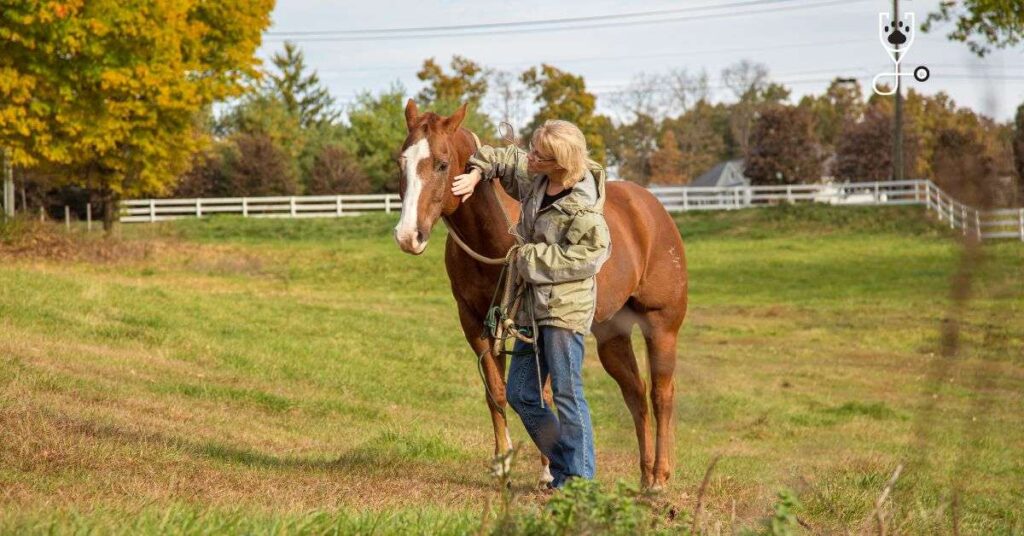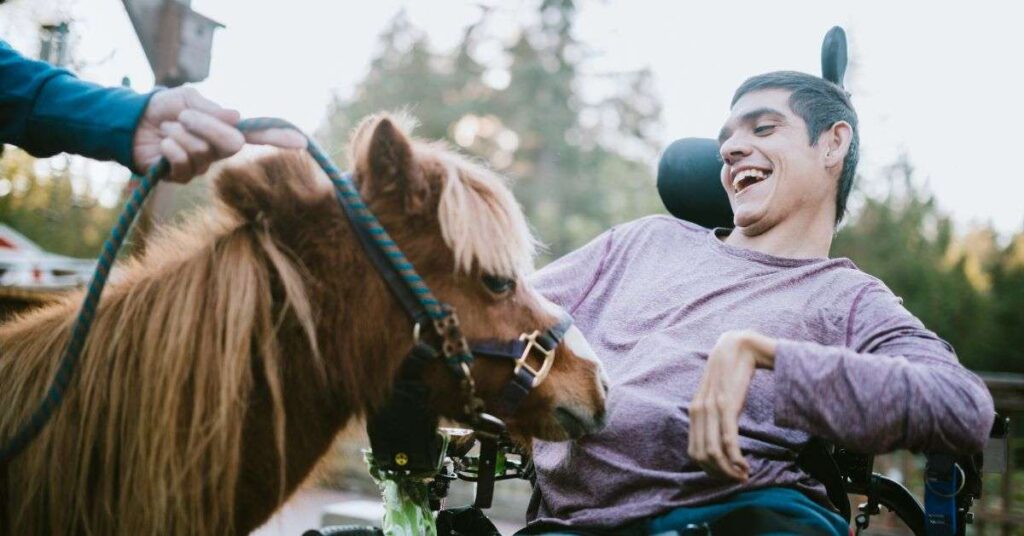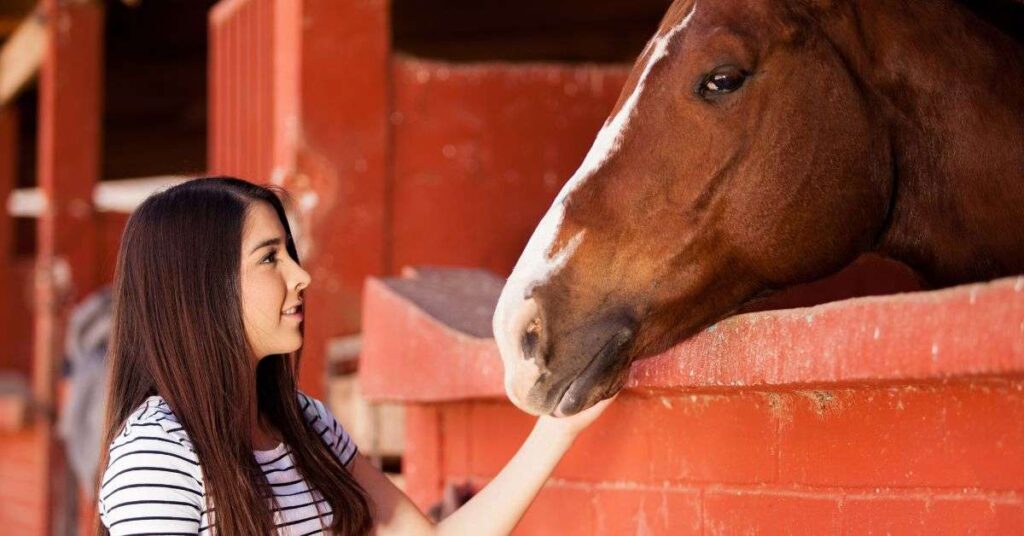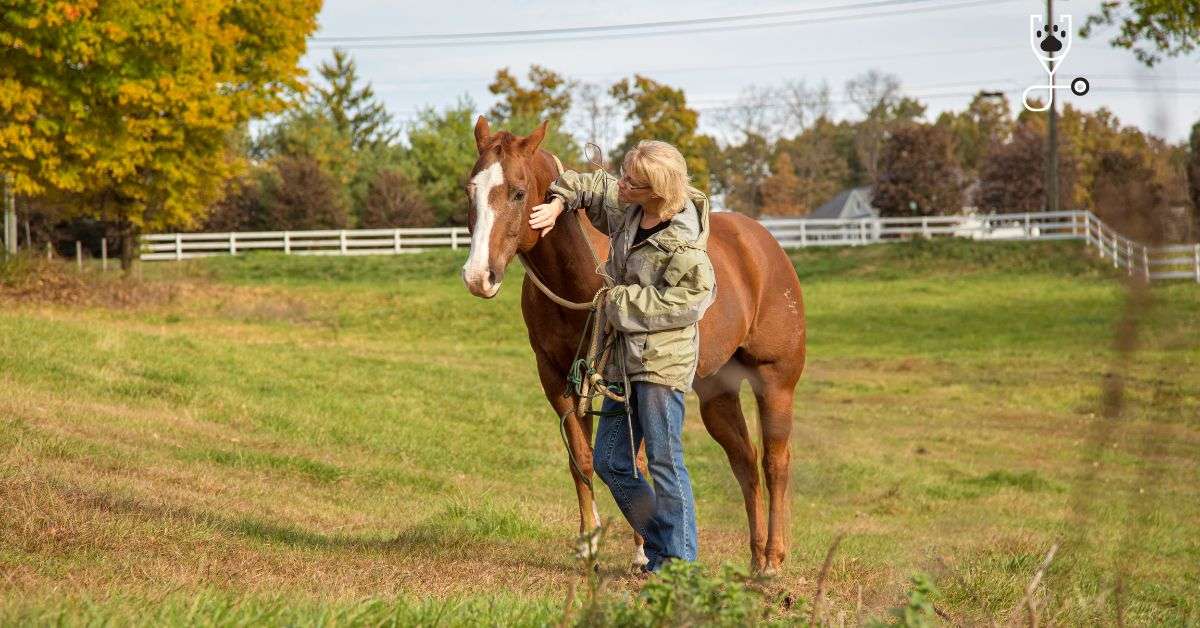If you’re a horse owner, then you may have wondered at one point or another if your horse would be a good therapy horse. With all of the therapeutic riding programs available these days, it’s no wonder that so many owners are curious about this option for their horses. While every horse has the potential to be a therapy animal, there are a few things you should consider before making the decision to enter your horse into this kind of program. In this post, we’ll take a look at some of those factors. So, if you’re thinking about turning your horse into a certified therapy animal, read on!

What is a therapy horse and what does it do for people in need?
A therapy horse is a specially trained horse that provides therapeutic riding lessons to people with physical, mental, or emotional disabilities. These horses are usually calm and gentle by nature, and they undergo special training to help them deal with the unique challenges of working with disabled riders.
Learn More About Horse: The Ultimate Guide To Ownership & Care
Benefits
The benefits of therapeutic riding are well-documented, and include improved physical coordination and balance, increased muscle strength, improved flexibility and range of motion, improved mental focus and concentration, reduced stress and anxiety levels, and improved social skills. In many cases, therapy horses can provide life-changing results for their riders.
Now that you know what a therapy horse is and what they can do for people in need, let’s take a look at some of the things you should consider before making the decision to enter your horse into a therapy program.
1. Check with your vet
The first thing you should do if you’re thinking about turning your horse into a therapy animal is to check with your veterinarian. Some horses may not be suitable for therapeutic riding due to health issues, so it’s important to get a professional opinion before making any decisions.
Learn More: Social Behaviors of Wild and Domestic Horses
2. Consider your horse’s personality
Another important factor to consider is your horse’s personality. Not all horses are suited for therapeutic riding, and even the best-trained horse can have a bad day now and then. It’s important to choose a horse that is calm and gentle by nature, and one that enjoys working with people.
3. Consider your horse’s age and health
Another thing to keep in mind is your horse’s age and health. While there are no age restrictions for therapy horses, it’s important to consider whether or not your horse is up for the physically demanding job of carrying a rider. If your horse is older or has health issues, he may not be able to handle the rigors of therapeutic riding.
4. Train your horse
If you decide that therapy riding is right for you and your horse, the next step is to begin training. There are a few different ways to go about this, but the most important thing is to find a trainer who is experienced in working with therapy horses. This way, you can be sure that your horse will be properly prepared for his new career.
Learn More: 5 Simple Tricks to Teach Your Horse
5. Get certified
After you and your horse have completed training, the next step is to get certified. This process usually involves a written test and a practical exam, and it will vary depending on the therapy program you’re applying to. Once you and your horse are certified, you’ll be ready to start working with disabled riders!

How can you tell if your horse would be a good fit for this type of work?
The best way to tell if your horse would be a good fit for therapy riding is to consult with a professional. Your veterinarian or a qualified trainer will be able to assess your horse’s health and personality, and they can help you decide if therapy riding is right for you and your horse.
Learn More: How to Calm a Nervous Horse
What kind of training is necessary to become a certified therapy horse handler or instructor?
There is no one-size-fits-all answer to this question, as the training requirements will vary depending on the therapy program you’re applying to. However, most programs will require you to complete a written test and a practical exam, and it’s important to find a trainer who is experienced in working with therapy horses. This way, you can be sure that you and your horse are properly prepared for your new career.
What Makes a Good Therapy Horse?
There are a few key qualities that make a good therapy horse.
First and foremost, the horse should be gentle and calm by nature. It’s also important that the horse enjoys working with people, as some horses may not appreciate the constant attention from riders.
Additionally, the horse should be in good physical health, as therapeutic riding can be physically demanding.
Finally, it’s important to choose a horse that has been properly trained for the job, as this will ensure that he is safe and comfortable around disabled riders.

Test Your Horse!
If you’re considering donating your horse to a therapeutic riding program, the following “games” can prepare your horse for a new career. But even if you and your horse will be together forever, these games can tighten the bond between you, and give your horse some much-needed exercise and mental stimulation.
The first game is called “Follow the Leader.” To play, simply walk around your arena or pasture while your horse follows behind. You can even add in some turns and stops to keep things interesting.
The second game is called “Target Training.” This is a great way to teach your horse to stand still for mounting, as well as to develop his focus and concentration. To play, simply set up a few cones or barrels in your arena, and then lead your horse around them, stopping at each one for a few seconds. You can also try this game with different objects, such as tarps or balls.
Read More: How to Gentle Break a Horse for Riding
The third game is called “Obstacle Course.” This is a great way to familiarize your horse with new objects, and to build his confidence. To set up the course, simply choose a few safe obstacles – like poles, barrels, or small jumps – and arrange them in an obstacle course pattern. Then lead your horse through the course, and praise him for bravely navigating each obstacle.
These are just a few games that can prepare your horse for a career in therapy riding. By playing these games on a regular basis, you can help your horse to develop the skills he’ll need to succeed in his new job. And who knows – you might even have some fun in the process!




